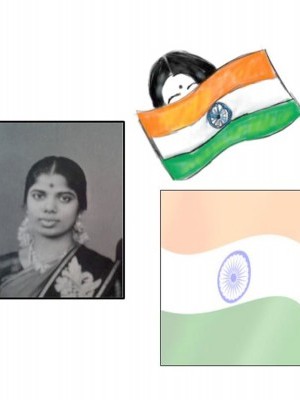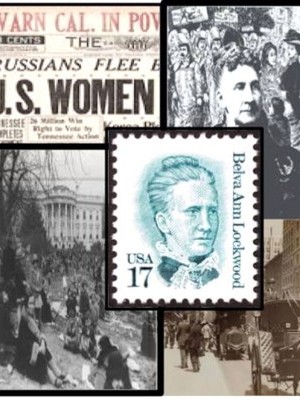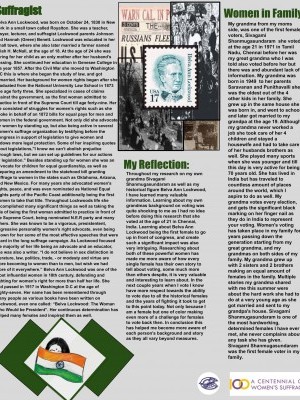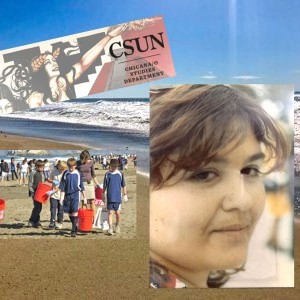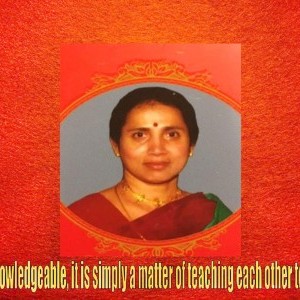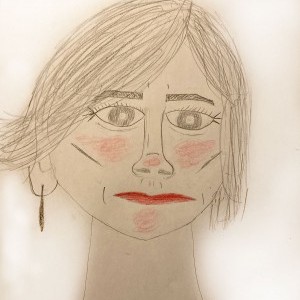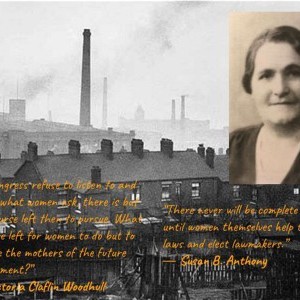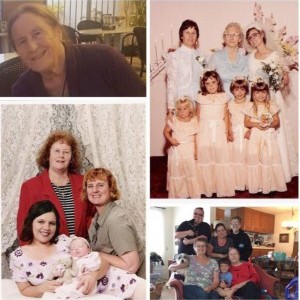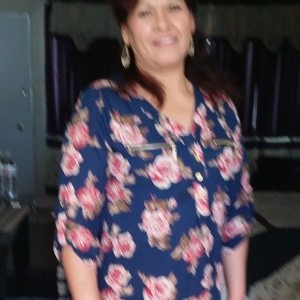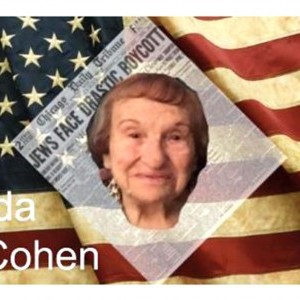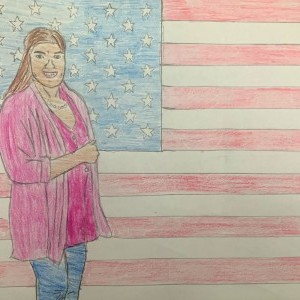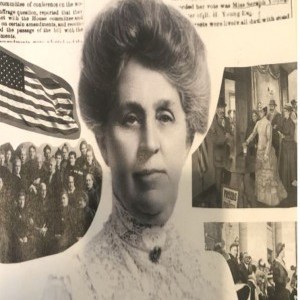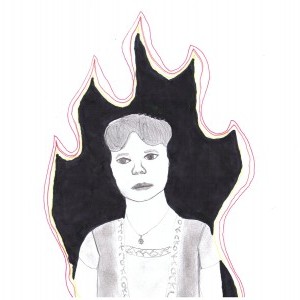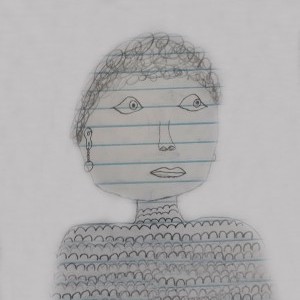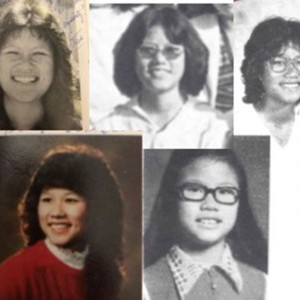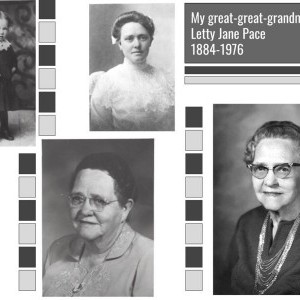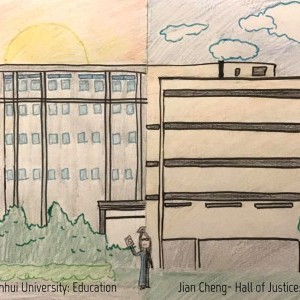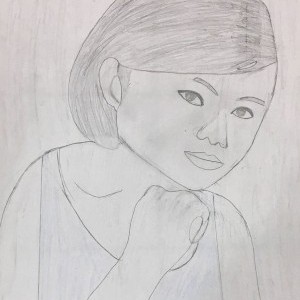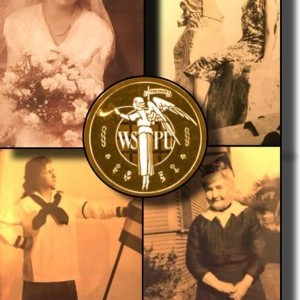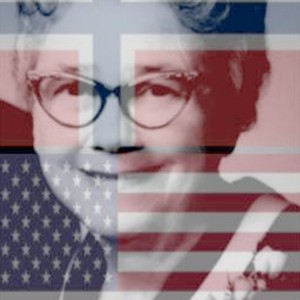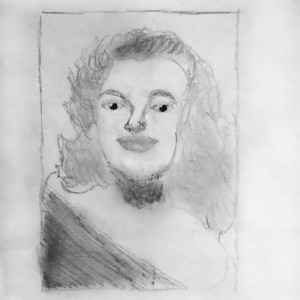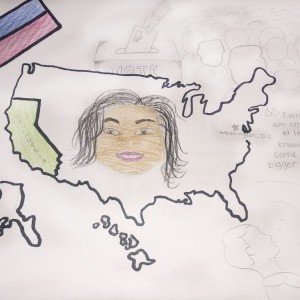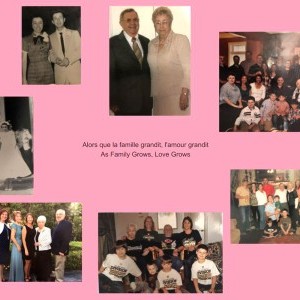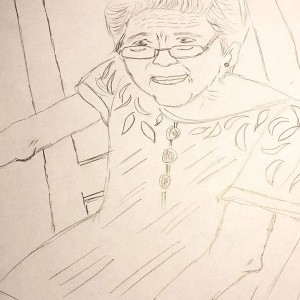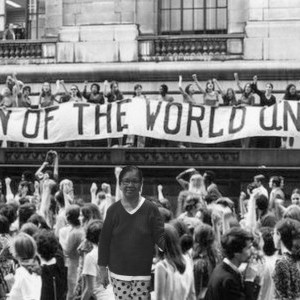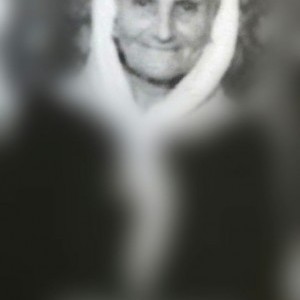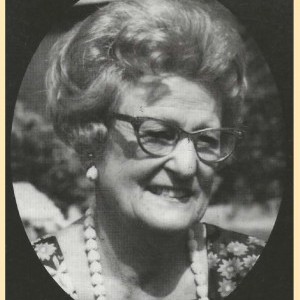Neha Nandakumar
Adolfo Camarillo High School | Camarillo, CA | 10th
Inspirational Family Member
My Grandma
My grandma from my mom’s side was one of the first female voters, Sivagami Shanmugasundaram. She voted at the age of twenty-one in 1971 in Tamil Nadu, Chennai. Before her was my great-grandma who I was told also voted but there was a lack of information.
My grandma was born in 1950 to her parents Saranvanan and Punithavalli. She was the oldest out of the four other kids in her family. She grew up in the same house she was born in, and went to school and later got married to my grandpa at the age of nineteen. Although my grandma never worked a job, she took care of her four children and stayed a housewife and had to take care of her husband’s brothers as well. She played many sports when she was younger and still to this day is very active for being seventy years old. She has lived in India but has traveled to countless other places around the world, which I aspire to do as well.
My grandma votes every election, and gets the significant black marking on her fingernail as they do in India to represent your voting. Women's voting has taken place in my family for years passing down the generations starting from my great-grandma, and my grandmas on both sides of my family. My grandma grew up with two sisters and two brothers making an equal amount of females in the family. Multiple stories my grandma shared with me this summer were about the hard work she had to do at a very young age as she got married and was sent to my grandpa's house.
Sivagami Shanmugasundaram is one of the most hardworking, determined females I have ever met, she never complains about any task she is given. Sivagami Shanmugasundaram was the first female voter in my family.
Historical Figure I Admire
Belva Ann Lockwood
Belva Ann Lockwood was born on October 24, 1830, in New York in a small town called Royalton. She was a teacher, lawyer, lecturer, and suffragist. Lockwood’s parents were Johnson and Hannah (Green) Bennett. Lockwood was educated in her small town, where she also later married a farmer named Uriah H. McNall, at the age of eighteen. At the age of twenty-four, she was caring for her child as an only mother after her husband’s passing. She continued her education in Genesee College in the year 1857.
After the Civil War, she moved to Washington D.C. and this is where she began the study of law, and got remarried. Her background for women rights began after she graduated from the National University Law School in 1873 at age forty-three. She specialized in cases of claims against the government, and she was the first woman admitted to practice in front of the Supreme Court at age forty-nine. Her life consisted of struggles for women’s rights such as she spoke on behalf of an 1872 bill for equal pay for men and women in the federal government. Not only did she advocate for women by standing up, but also by being active in several women’s suffrage organizations by testifying before the Congress in support of legislation to give women and widows more legal protection.
One of her inspiring quotes about legislation: "I know we can’t abolish prejudice through laws, but we can set up guidelines for our actions by legislation." Besides standing up for women she was an advocate for children and for equal guardianship. She also supported an amendment to the statehood bill granting suffrage to women in the states such as Oklahoma, Arizona, and New Mexico. For many years she advocated women's rights, peace, and was even nominated as the presidential candidate for the National Equal Rights Party. Throughout Lockwood’s life she accomplished many significant things as well as taking the title of being the first woman admitted to practice in front of the Supreme Court, being nominated by the N.E.R party and many others.
She was known for her vigorous, persistent, aggressive personality and being a women's right advocate. Some of the most effective speeches that were heard in the long suffrage campaign were hers. Lockwood focused the majority of her life being an advocate and an educator but she was also a writer. “I do not believe in sex distinction in literature, law, politics, trade….Modesty and virtue are more becoming to women than to men, but I wish we had more of it everywhere.” Belva Ann Lockwood was one of the most influential women in 19th century, defending and fighting for women's rights for more than half her life. She passed in 1917 in Washington D.C. at the age of eighty-seven. Her name has been remembered through many people as various books have been written on Lockwood, even one called, Belva Lockwood: The Woman Who Would be President. Her continuous determination has helped many females and inspired them as well.
What the Project Means to Me
Throughout my research on my own grandma Sivagami Shanmugasundaram as well as my historical figure Belva Ann Lockwood, I have learned a lot of valuable information. Learning about my own grandma’s background on voting was quite shocking to me as I had no idea before doing this research that she voted at the age of 21 in Chennai, India.
Learning about Belva Ann Lockwood being the first female to go up in front of Congress, and create such a significant impact was also very intriguing. Researching about both of these powerful women has made me more aware of how every single female has their own story to tell about voting, some much more than others and it is very valuable and interesting to learn about. In the next couple of years, when I vote, I will have more respect towards the ability to vote due to all the historical females and the years of fighting it took to get to this point today. Not only because I am a female but because I am one of color, which made it even more of a challenge for females to vote back then. In conclusion this has helped me become more aware of each person's background and story as they all vary beyond measures.
Explore the Archive
More From This Class
Click on the thumbnails below to view each student's work.Deadline Extended
There's still time to join Women Leading the Way.
Become a part of our storytelling archive. Enroll your class today.
Join the Project

